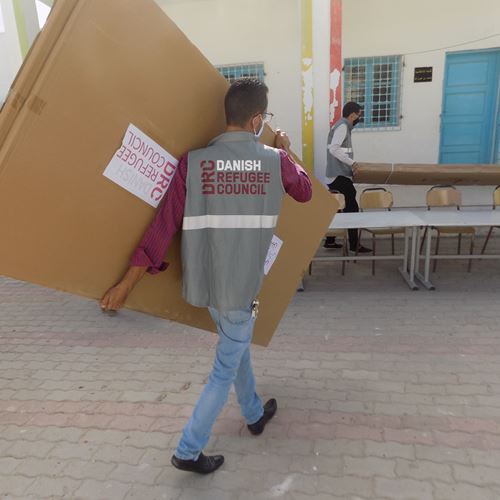
Yann
Faivre
Executive Director West & North Africa and Latin America
Although Tunisia is often presented as an Arab Spring success story in terms of democratic change, many of the political, social and economic grievances that existed before the ‘Jasmine Revolution’ of 2011 persist.

Source: | UNHCR
EDPs: Refugees under UNHCR’s mandate
IDPs: Internally displaced persons
Asylum seekers: People whose claims for refugee status have not yet been determined
Stateless: People not considered as nationals by any State
HST: People living in Host Communities
OIP: Others in need of International Protection
OOC: Others of Concern
DRC forecasts are based on a machine learning tool that has been developed to predict forced displacement (IDPs, refugees and asylum seekers) at the national level 1-3 years into the future.
DRC has been working in Tunisia since 2011 as part of a coordinated Libya-Tunisia program responding to regional instability following the Arab Spring revolutions. DRC has a coordination office in Tunis for its operations in Algeria, Libya and Tunisia.
Since 2014, DRC has been implementing a series of armed violence reduction projects aimed at enhancing community security and resilience in key border towns in Tunisia.
Since 2021, DRC has diversified its programming to focus on Economic Recovery support for Tunisian Youth including through a multi-year, Danish MFA funded, Danish Arab Partnership Program.

Yann
Faivre
Executive Director West & North Africa and Latin America
Sonia Alix Marine
Joly
Country Director